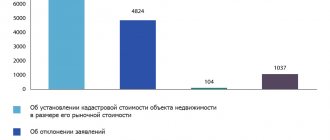Private subsidiary plot (personal subsidiary plot) refers to that form of non-entrepreneurial economic and labor activity that is based on the cultivation of livestock products or agricultural (ornamental) crops.
For citizens who are interested in the question of how to register a private plot and what it gives, it is necessary to refer to the Federal Law “On Personal Subsidiary Farming” (No. 112/07. 07. 2003)
The document sets out the meaning of the concept of “personal subsidiary farming” and explains the legal basis for its management. Articles of the law include clauses and subclauses on the rights of citizens, their state support, registration of land plots, relations with authorities, etc.
Who can benefit from personal farming?
Since running private household plots represents one of the many types of land use, an essential condition for engaging in this type of work activity is the availability of a plot. At the same time, ownership of it can be legalized by the right of personal property, or by registration of a lease.
Other conditions for conducting non-entrepreneurial activities are regulated by Art. 3 Federal Law 112 . It establishes that an adult capable citizen of Russia will have the right to run private household plots in the event of the following circumstances:
- He and his family are registered in this rural locality.
- A private individual is able to independently (together with family members) work on his or her farm without hiring hired workers.
- The purpose of work is to satisfy personal needs for food, but there is no ban on the sale of surplus agricultural products.
Citizens of the Russian Federation can engage in not only one, but several types of agricultural activities.
We register ownership of private household plots
This requires land. You can buy it, rent it from other citizens, or receive it for free from the authorities.
Each method provides a separate chain of actions. Let's talk about them in detail.
How to obtain land from the administration for lease, indefinite use or purchase? First, an application is submitted, in response you need to receive a written document that the authorities agree to allocate the land.
Now you can report your desire to register private household plots with the local administration and provide documents:
- Passport information about the owner or tenant
- Information about family members.
- Cadastral number of the plot and its area.
- Number of animals, birds, hives.
- List of machinery, vehicles and equipment.
Documents must confirm that the purpose of the new subsidiary farm is to meet personal food needs.
Then proceed according to plan:
- An application is submitted to the administration using a special form
- Local authorities review the documents and issue a positive answer or refusal.
- When permission is received, they turn to cadastral engineers to demarcate the plot.
- The boundaries of the site have been determined. Now it is registered in the cadastre and an extract is received.
- An extract from the Unified State Register is submitted to the local administration and after 20 days they receive documents on the right of ownership of the plot for private household plots.
As soon as land rights are registered, the farmer has the right to engage in private farming.
If there is no land, then you can buy it from another person. These can be both rural residents and city dwellers.
The chain of actions looks like this.
- A suitable site is selected. To do this you will have to do a little research. For example, look at the urban planning plan and understand whether this site is planned for development, a highway or other government needs.
- They will find out whether he is free from rent, collateral, or arrest using an extended extract from the Unified State Register of Real Estate.
- If the information is verified and there are no doubts, then a purchase and sale agreement is concluded.
BTI authorities, cadastral engineers, and a notary can help at any stage of the transaction.
When the land changes owner, documents about this are submitted to the MFC. After 7-10 working days of state inspection, the new owner receives an extract from the Unified State Register of Real Estate certifying his ownership. From this moment on, the private plot is his property and he can dispose of it at his own discretion.
What are the requirements for a plot of land for private plots?
A peculiarity of the plots used as a base for private household plots is that they can be lands of settlements, and also belong to the category of lands for agricultural purposes.
A plot of land for private household plots, legally permitted for use by rural workers, may be located outside the territory of rural settlements (field plot), and may also be homestead land.
On the latter, you can build housing, household, auxiliary and other buildings. A mandatory condition is compliance with urban planning regulations, safety and environmental standards.
It is not permitted to build buildings with foundations on the field site. On agricultural lands you can install greenhouses, a barn, and maintain an apiary.
The size of the land plot for subsistence farming is established in Art. 4 Federal Law No. 112 - half a hectare . However, the norms of acts of local government bodies allow an increase in this area by five times. This standard may be different for individual constituent entities of the Russian Federation. In the Far East, for example, the restriction does not apply.
What can you do on private household plot land?
According to the law on private household plots, the allotment is used for the following purposes:
- To obtain agricultural products.
- For the construction of a residential building and auxiliary structures.
The main subtlety is that private farming is carried out on agricultural lands and on the lands of populated areas.
On the land of private household plots it is possible
- install greenhouses, sheds
- set up apiaries
- grow all types of crops
- garden
- gardening
- produce organic products
- raise rabbits and broiler chickens.
If construction is currently underway on the site, and you plan to raise animals in the future, then you do not need to additionally inform the authorities about this.
But about breeding exotic animals and birds you will need to notify the authorities and pay a social tax.
Registration of a plot of land for occupation in private household plots
How to register ownership of a land plot for private household plots is explained in detail in the Land Code of the Russian Federation. The document provides for categories of Russians who can receive free ownership of a plot of land for private household plots without prior leasing:
- Young spouses under the age of 35 (each) in need of improved living conditions. At the same time, members of such a family must either work or be registered with the Central Employment Center (employment center).
- Married couples with 3 or more children, including adopted ones.
- Russians who have been awarded the highest state titles - Hero of Labor of the Russian Federation, Hero of Russia.
Other categories of citizens can receive land as personal property free of charge after a certain period of lease . Such a period must be at least five years, and the applicant must be a sought-after agricultural specialist. The tenant can obtain ownership rights after verifying that there are no violations in the intended use of the land.
A plot of land to support labor activity in private household plots can be inherited, purchased, received as a gift, exchanged, etc.
An applicant for a vacant plot must declare his intention in writing by contacting the head of the local administration. If there are no others willing to purchase the land, officials will consider the application and issue a resolution or refuse to issue it. Such a document will indicate the area of the allocated plot and its location.
How much land can you get for free for private plots in various regions of Russia?
Land for subsidiary farming is under the jurisdiction of local authorities. They provide it for rent, indefinite use, or sell it to citizens.
The maximum size of an allotment for private household plots is defined as 50 acres. However, regional authorities can increase it to 2.5 hectares. For example, in the Leningrad region it is 99 acres. In other regions, 50 acres are allocated per person. Exact standards are contained on the website of government services or local administration.
The size of the plot depends on the following conditions:
- What rule of law applies.
- What category of citizens does the applicant for the plot belong to?
- For what purposes is it provided?
It is important to keep in mind that the authorities may allocate a site in areas where it is impossible to use equipment, or several kilometers from the house. Therefore, when submitting an application, you can ask where it is planned to allocate land for private plots.
If there is not enough land near the house, then they rent it or buy a plot in the field.
Another nuance is that the distribution of plots can be carried out through bidding on a competitive basis, and the authorities do not inform in advance about the location of the plot.
And it’s a completely different matter when a tenant wants to buy out a plot on which he has been working for several years. In this case, he enjoys the pre-emptive right of redemption.
Priority is also given to those who are registered in a given locality, as opposed to people with city registration.
How to carry out the procedure for obtaining an allotment in practice?
The step-by-step instructions provide for the following procedure for the applicant to obtain private household plot land:
- Preparation of a package of necessary documentation.
- Submitting an application to the local government authority located in the same territory as the land.
- Receipt by the applicant of a preliminary positive or negative decision.
- Land surveying carried out by a competent design organization.
- Submission of documentation on establishing the boundaries of the land plot to the cadastral chamber.
- Obtaining a cadastral passport and submitting the document to the relevant local government body.
- Obtaining a document on the right of ownership of land for private plots.
- State registration of the site.
The permitted use of a land plot begins from the moment of registration of lease relations or ownership of the plot . Since 2015, a citizen who has received land for running private household plots has been issued an extract from the household register instead of a certificate of registered property rights.
To receive it in 2021, an individual must pay a state fee in the amount of 200 rubles and submit an application to the municipal administration at the location of the site. The document is issued within 20 days from the date of filing the application.
City residents, who know from their rural relatives what personal private plots are, can also register land on the territory of rural settlements. In this case, a prerequisite is the availability of a free plot of land.
Labor activity in one’s own subsidiary farm “from scratch” is carried out during non-working hours, since it is a form of secondary employment.
Advantages of private household plots
By owning land on a field plot and a residential building within the boundaries of the settlement, a private plot farmer acquires the following advantages:
- the private plot farmer does not register the farm with the tax authorities;
- there is no need to keep records and reports;
- the possibility of receiving subsidies from the state and a bank loan aimed at developing activities;
- can grow agricultural products for own consumption and for sale. At the same time, the proceeds are not subject to any taxes (including VAT).
When the harvest has already been harvested, and the living creatures have turned into meat, the worker begins to think about where to begin preparing for sale.
Before sending grown products from the yard for sale, you must obtain a certificate from the local government . It certifies that the products were grown in private household plots.
Having a document, the farmer can be calm that he will not be required to pay tax, and he also does not need to use a cash register.
Due to the fact that the private plot farmer does not belong to the category of beneficiaries, he is obliged to pay land and property taxes on capital construction.
The first of these is charged annually after October 1, depending on the cadastral value of the site. For private household plots – 0.3%. There is no fee for pensioners.
What are the taxes on private household plots in 2021?
Legal status allows you to pay only two taxes: on land owned and on real estate and equipment. There are no taxes for leased land.
Pensioners are exempt from paying taxes.
Owners of private household plots have no income tax, no VAT, or deductions from employee wages. Income from the sale of products is also not taxed. It is enough to present a certificate from the local administration that the products were produced in private household plots.
Often owners sell flowers, meat, dairy products at the market and questions arise about cash registers. Cash desk is required only for organizations and individual entrepreneurs.
If the land is not used or is used for other purposes, the owner faces a fine and confiscation of the plot with subsequent sale at auction.
The law provides for the following cases:
- Inappropriate use of land for 3 years.
- During ownership, the quality of the site or the environmental situation deteriorated.
- Confiscation of land for state needs.
- A plot of land whose area exceeds the legal norm is alienated.
If the size of the plot is larger for some reason, then the owner can correct the situation within a year as follows: sell, donate, refuse, lease, register as an individual entrepreneur or K(F)H.
This condition is established in the legislation in order to exclude the emergence of giant private household plots that lease or own hundreds of hectares without taxation.
On state support for private household plot farmers
Having provided information on how to open private household plots and what taxes are expected of individuals in this field, the regulatory document in Article 7 explains in what areas state support for private household plots is provided.
These measures include:
- Creation of marketing, service and processing cooperatives for simplified marketing of products by farmers.
- Providing agricultural regions with access roads, energy supplies, communications, etc.
- Creation of conditions for free veterinary care.
- Providing financial and material resources on a repayable basis.
All activities are carried out within the framework of relevant programs to support agricultural producers.
How to get a subsidy from the state and a bank loan for private household plots?
Material resources in the form of subsidies issued by the state for running private household plots can reimburse the costs of seed, livestock, technical equipment, etc. State support funds are able to cover the farmer’s costs both partially and completely. Subsidizing occurs at both the federal and regional levels.
You need to consult with your local administration on where to start applying for a subsidy. Officials will tell you that in addition to the relevant application, you will need to prepare a package of necessary documents.
The list of business papers depends on regional requirements and the type of financial assistance . You won’t have to wait long for it, but it all depends on the fullness of the local treasury, the peculiarities of regional politics and other factors.
Rural residents perceive private plots as a business idea for beginning farmers . And for a successful start, a certain amount of financial investment is required for the construction of a greenhouse, the purchase of young animals, feed, and seeding material.
Many Russian banks provide loans for private household plot farmers, but the most reliable and reputable lending organizations are Rosselkhozbank and Sberbank of Russia.
To obtain a specialized bank loan for private household plots, a farmer must have an extract from the household register, as well as provide the lending organization with the necessary documentation. The package of business papers must include information about the private household plot with confirmation of its income, surety and collateral documentation.
Private household plots and loans, features of obtaining
You can apply for a loan for the further development of private household plots using one of the programs:
- for the construction of communications. The maximum loan amount is 500 thousand rubles, the interest rate is 15.5%;
- for the development of private household plots. Maximum amount 700 thousand rubles, interest rate 14%;
- “Reliable Partner” lending program. Loans are issued for regular bank customers at 13.5%;
- “Gardener” loan program. Interest rate from 16%, maximum limit up to 150 million rubles.
You can get a loan from the following banks:
- Sberbank;
- Rosselkhozbank;
- Rossgostrakh.
Basic requirements for borrowers:
Age category from 18 to 65 years;
- mandatory confirmation of solvency;
- availability of movable or immovable property as collateral;
- presentation of guarantors.
What to choose: peasant farm or private household plot?
Having considered the advantages of the organization and activities of a farmer in a personal subsidiary plot, we can come to a certain conclusion that the features of the work of a peasant farm (peasant farm) are different from private subsidiary plots, especially in terms of taxation. Therefore, each farmer decides for himself what is better to open: private farm or peasant farm.
Farming in these two forms is expressed by the following differences:
- After registering a plot of land, a private plot farmer immediately starts working, without registration. Farming in a peasant farm can be carried out only after registration of an individual entrepreneur.
- A peasant farmer is an individual entrepreneur, while work in a private household plot is a non-entrepreneurial activity.
- The association of citizens in peasant farms does not occur through family ties, but family members work in private farms.
- The results of the activities of peasant farms in the form of agricultural products, profits, property are the property of the association, while in a personal subsidiary plot they are the personal property of the family.
- Lack of taxation and accounting for the private plot farmer. The peasant farm, as an entrepreneurial structure, pays taxes, keeps records and reports on the results of its activities.
For a beginning peasant farmer, greater opportunities are provided in obtaining government support, borrowed funds, and allocating a land plot of more than 2.5 hectares. The form of economic activity in the form of private household plots can be perceived as a way of additional benefit from the use of personal labor on one’s own plot.
As the crisis deepened, this activity intensified significantly; citizens are engaged in business and, at the same time, do not pay taxes. Such actions are completely legal, the state supports labor activity on the land and provides support to private plot farmers.
Advantages when choosing land for private household plots for permanent residence
There are no taxes on manufactured products. To resolve any questions that arise from law enforcement officers, it is enough to present a certificate from the local administration that the products were obtained from private household plots without the use of hired labor.
No need to register with the tax office.
Benefits are provided for agricultural machinery and transport tax.
Taxes on private household plots are lower than on individual housing construction.
You can build a house on a personal plot and use common communications.
The law recognizes a house on the site as residential and you can register in it.
Take advantage of benefits under the state program and receive funds for the purchase of seeds, animals, bees, feed, and tools for cultivating the land.
The owner receives a house with a garden plot on which he can grow vegetables and fruits, raise chickens, geese, and rabbits for his own needs. Millions of Russians solve their families’ food problem in this way.
Farm owners are not afraid of visits from government officials, unlike K(F)H.








